
Policy Research & Analysis News

MEI's Policy Center convenes regional and international leaders to find solutions to the region's most challenging issues. Led by renowned scholars and regional experts, these programs produce original research, convene roundtables and public events, and work to advance understanding of the complexities of regional policy.
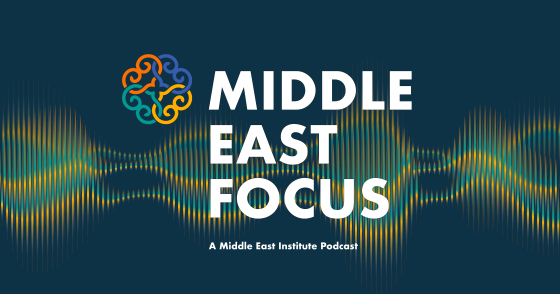
In the final episode of 2025, MEI Senior Fellow Paul Salem joins hosts Alistair Taylor and Matthew Czekaj to unpack the major developments that shaped the Middle East over the past year and to look ahead to 2026. Salem reviews the key events that redefined the regional order, including President Donald Trump’s return to office, the 12-day war between Israel and Iran, and the ongoing negotiations over Gaza. He assesses how the region has changed over the past year and what those shifts could mean moving forward.

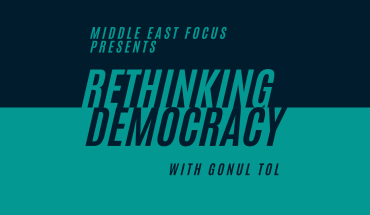
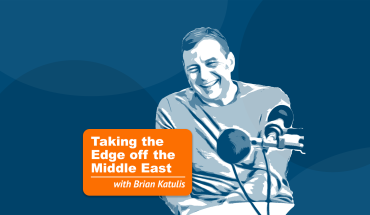
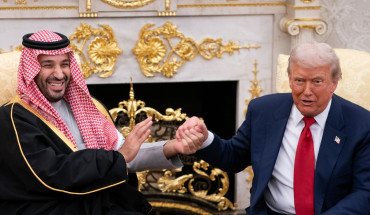
Led by renowned scholars and regional experts, MEI's policy research programs produce original analysis, convene roundtables and public events, and work to advance understanding of the complexities of regional policy.
MEI’s Afghanistan and Pakistan studies center aims to advance a balanced and realistic understanding of the politics, economy, society and foreign policy of these two countries. It works with scholars to produce original research, sponsors lectures, produces opinion pieces, and provides expert analysis with the goal of promoting knowledge about Afghanistan and Pakistan among the American public and within policy making circles.
MEI’s Arabian Peninsula Affairs program aims to enhance U.S. understanding of the major issues and opportunities in front of the six members of the Gulf Cooperation Council who are key political, security, and economic partners for the United States. It is a hub for analysis of developments within the GCC and the broader region, including Iran, Yemen, and the Gulf and Red Sea littorals.
MEI’s Black Sea Program explores interactions between countries in the extended Black Sea area – Armenia, Azerbaijan, Bulgaria, Georgia, Moldova, Romania, Russia, Turkey, and Ukraine – and strategic competition in the intersection of the Middle East, Europe, and Asia. The program examines security, political, economic, and energy relationships and trends in this critical region with the aim of developing greater understanding of its complexities.
The Climate and Water Program seeks to assess and understand the broader impacts of climate change in the region, with emphasis on water resources management, sustainability, and the environment. The program also explores the use of water and environmental policy, climate adaptation and mitigation, and green initiatives to enhance the climate resilience of the Middle East and North Africa.
Establishing spaces for current and former officials and experts to engage in problem-solving dialogues in which they discuss emerging political and security trends in the region, resolution of conflicts, and broader issues related to regional security.
MEI's Countering Terrorism and Extremism program seeks to generate a more locally-rooted understanding of the threats and challenges of today and tomorrow - grasping where they come from and why they come about, and most importantly, how to more effectively and sustainably defeat them.
MEI's Defense and Security program provides rigorous and multidisciplinary analysis of the current and emerging defense and security challenges and opportunities facing the United States and its regional partners. It also works to create a unique, credible, and independent platform for defense and security stakeholders from both the United States and the region to more closely interact, exchange views, and share experiences regarding various matters of national security.
The Program on Economics and Energy seeks to advance understanding of the impact of a global energy transition away from hydrocarbons for those traditional oil and gas exporters of the Middle East. The program also investigates the relationship between oil and gas exporters and importers across MENA, in the role of financial aid and investment, remittances, and labor markets.
MEI's Egypt Program looks at the country's security, economic and political developments. It seeks to examine Egypt’s domestic developments and regional role through research, private roundtables and public events.
MEI’s Iran program covers Iranian domestic politics, civil society and social trends, and Tehran’s soft- and hard-power approach to geopolitical competition with other regional states through research, articles, papers, and public and private events.
Since 2019, Lebanon has suffered a grueling convergence of political, humanitarian, financial, and socio-economic crises. In parallel, citizens have risen up to demand accountability, reforms, and an end to corruption and incompetence. In such critical times, MEI’s dedicated Lebanon program seeks to inform and advance the policy conversation on Lebanon in the United States and globally. The program particularly focuses on investigating and promoting viable paths forward for Lebanon as it battles through one of the darkest periods in its 100-year modern history.
Content from this project is now archived as of March 2023. MAP explored the multidimensional relations between the Middle East and Asia through scholarly analysis of cross-regional economic, political, security, and social/cultural interactions and their implications. It worked to foster collaborative research on these issues through building an online community of experts and forging institutional partnerships.
The North Africa and Sahel Program studies this region’s evolving internal social, political, and economic dynamics and draws attention to its growing geopolitical significance. The program brings the voices and experiences of new and established actors to a global audience and provides a space to build closer ties and promote shared peace and prosperity.
The Program on Palestine and Palestinian-Israeli Affairs examines the future of Palestinian politics and the Palestinian national movement as well as the prospects for a peaceful resolution to the Israeli-Palestinian conflict and the role of the conflict in the stability of the broader Middle East.
MEI's Strategic Foresight Initiative examines key drivers and dynamics at work in the region, thinks strategically, creatively and rigorously about various scenarios, risks and opportunities, and uses methodologically sound approaches to help decision-makers chart a course forward.
The world is witnessing a tech cold war and decoupling between the U.S. and China, as new geopolitical fault lines emerge based on technology networks and the flow of information. This has critical implications for the Middle East as the region seeks to become an inflection point for the new digital order and a key arbiter in building the global digital architecture. MEI's Strategic Technologies and Cyber Security Program studies how emerging technologies are impacting the region, analyzes the rise of new tech powers, and seeks to open up opportunities for new tech cooperation between the U.S. and leading regional actors.
MEI’s Syria Program seeks to provide insightful and grounded research and analysis on all things Syria in order to better inform a wide range of audiences and to help sustain and shape a more meaningful policy-oriented discussion. Drawing on the expertise of over a dozen renowned scholars, the Syria Program covers all aspects of Syria and its ongoing crises - from political, economic, legal, social, ethnic and religious dynamics, to conflict, insurgency and terrorism and the country’s history and possible futures.
Established in 2009, MEI’s Turkish Studies program seeks to highlight and analyze political, economic, and social developments in Turkey through scholarly research and public events. It organizes an annual conference featuring leading experts and policy practitioners from Turkey, the United States, and the EU.
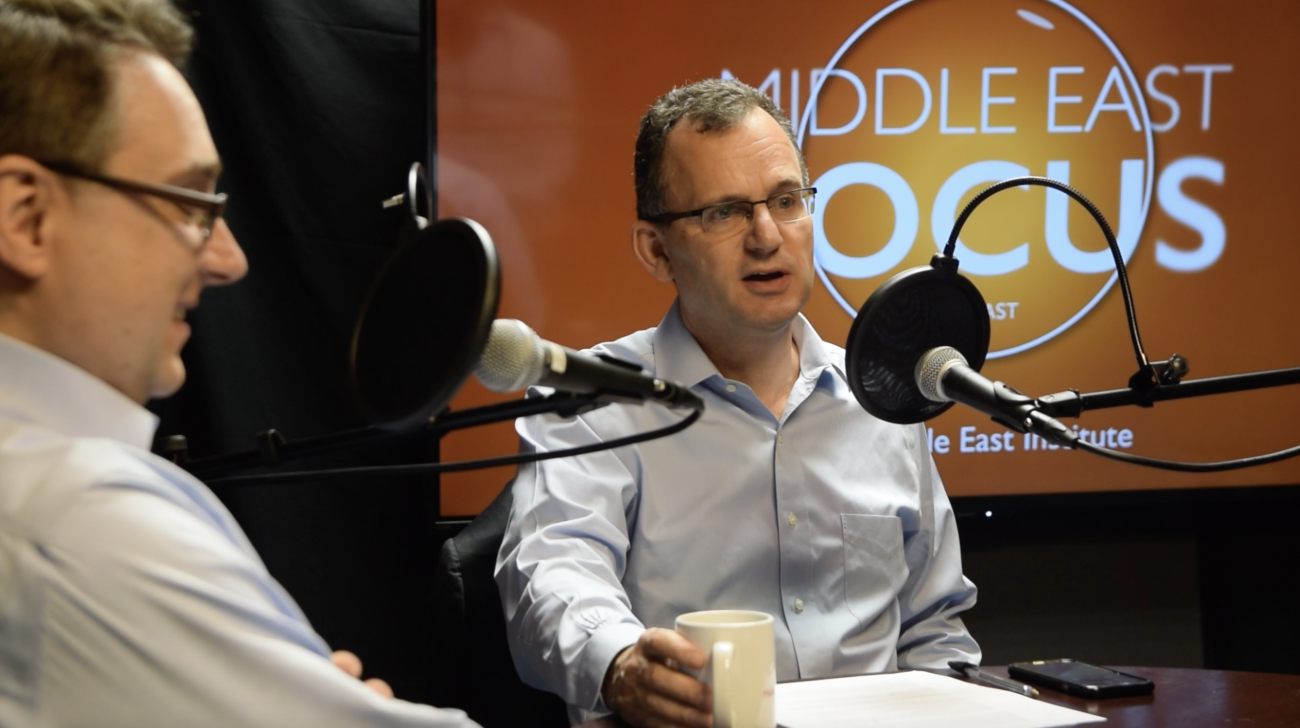
Middle East Focus is a weekly podcast featuring discussion and analysis on U.S. foreign policy and contemporary political and social issues in the Middle East.